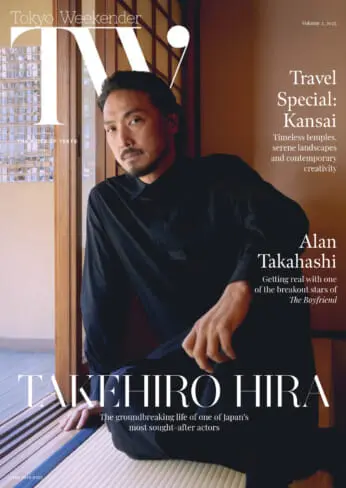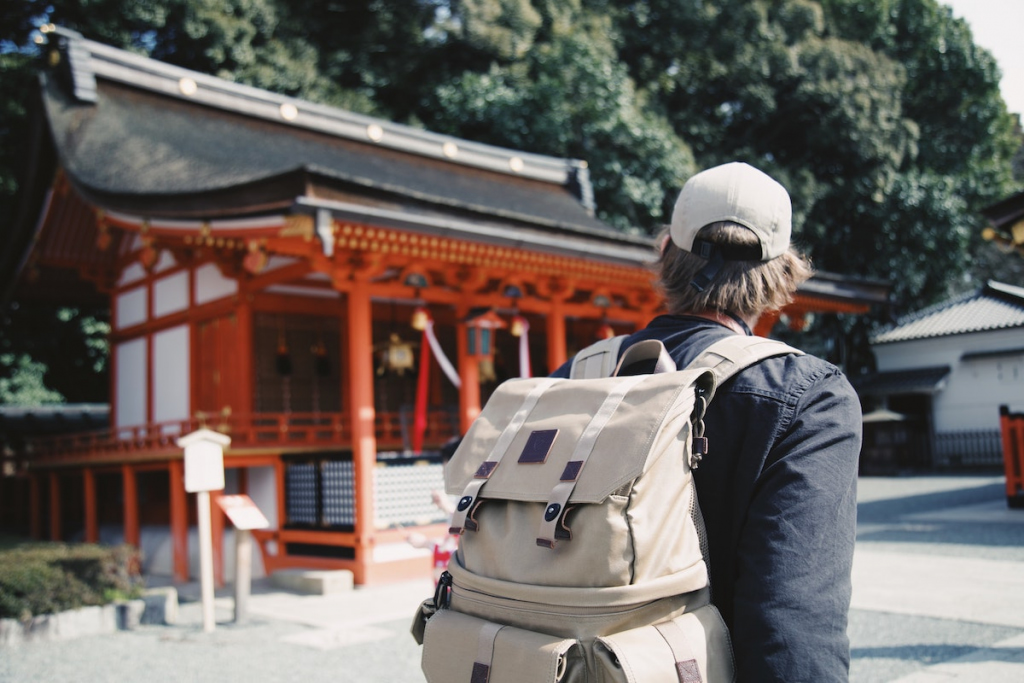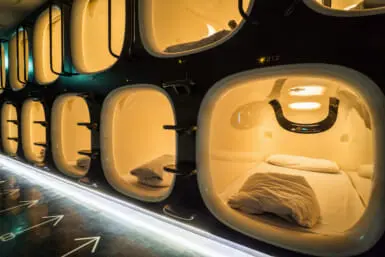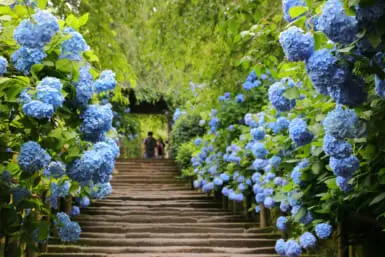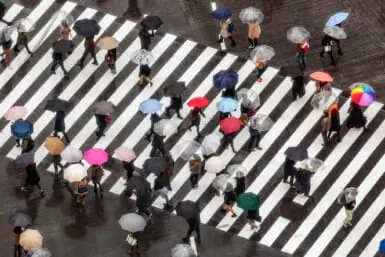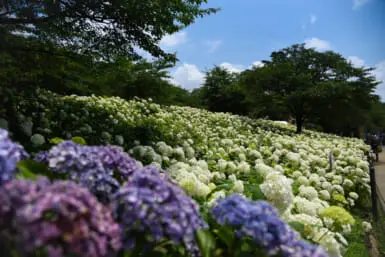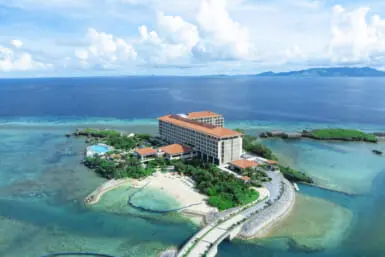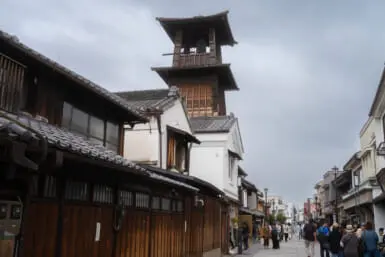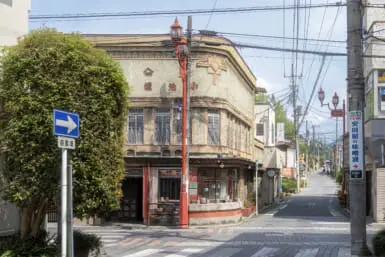I’ve always regarded the notion of traveling in a world without travelers as rather romantic: Herodotus gushing over the Persian Empire in the 5th century BCE as he chronicled the Greco-Persian Wars; Captain James Cook on the HMS Endeavor charting Australasian coastlines in the 1700s; even the first foreigners to recreationally visit Japan in the post-Meiji era when the gates to this once-mysterious archipelago were shunted open.
2020’s version of a traveless world wasn’t exactly what I’d had in mind. However, in early autumn, it looked like the worst of the pandemic had passed comparatively quickly in Japan, presenting an opportunity.
My desire to travel somewhere strongly correlates with how few people are likely to be there. I would love to tell you this is a recent quirk, stemming from a moral duty to keep myself and others safe. It’s not. Unless I’m sat in a convivial pub with a free-flowing drink, I seek solitude on the road. So, when my girlfriend and I were brainstorming where to go on a two-week domestic sojourn, my thoughts were true to form: “Let’s go where people are not.”
A Brave New World
Since April 2020, Japan has consistently welcomed 99.9% fewer monthly visitors from abroad compared with the previous year. The challenges on our trip weren’t to be defined by my aversion to tourists, but something a little more unpredictable.
We’ve all heard the stories of discrimination since the virus took root in Japan. At first, various fingers were pointing blame at the Chinese people for bringing Covid-19, and its subsequent proliferation, into the country. Gradually, foreigners of all stripes were the recipients of furtive glances, concerned eyes, and problems in the workplace — not to mention a different set of government-imposed travel restrictions.
“With the tourists gone, it’s the strangest, but also the best time to travel.”
At last, rural communities began turning on the big cities. Tokyo and Osaka’s Covid-19 cases skyrocketed while empty prefectures contained the spread — this took the form of angry notes left on cars with out-of-town number plates, or in extreme cases, verbal abuse and restaurant bans directed at outsiders.
“Everyone in the countryside back home is suspicious; they’re watching each other,” a friend from Kagoshima told me.
We were going to put this theory to the test.
Omotenashi
Japan’s revered omotenashi — a concept loosely translated as “hospitality” — is clearly at odds with reports of nationwide discrimination. Though one should remember, these disparaging reports reflect incidents, not necessarily the prevailing wisdom.
Our trip took us from Shimane’s Sea of Japan coastline, through Honshu to the islands of Shikoku, and onwards to Kyushu in the laid-back south. Kitted out with various rent-a-cars, decidedly not Japanese faces, and to my girlfriend’s chagrin, rugby tops proudly proclaiming me to be a ‘Tokyo Gaijin,’ we were clearly not from around these parts. Yet not once were we ostracized.
Japanese niceness can feel dictated by protocol, but it exudes a charm and innocence when genuine. You can sense it as you each wrestle with foreign languages to have a thrilling conversation that would be mundane as concrete in your own tongue, or when a Japanese person replies to your stated occupation with uncontained surprise, your stock phrases with wide-eyed interest.
“Not once were we ostracized.”
Such were the encounters that shaped our trip: the young barman in Izumo extolling the virtues of sour cocktails in the small hours of the morning, the rogue adventurer in Yakushima whose friendliness was only trumped by his enthusiasm for American Spirits and shamanistic knowledge of local flora, the octogenarian in Onomichi Station whose sole purpose in life I can only presume was to insist he gave us help we didn’t need.
New-Look Japan
Recently, much of Japan has been refashioned to suit the needs of constantly-arriving tourists: bus-only parking lots beside machiya (old-town) quarters, souvenir peddlers pitched at temple entrances, ropeways and cable cars to every nice viewpoint, and tax-free shopping signs everywhere in sight.
With the tourists gone, it’s the strangest, but also the best time to travel. As we hiked gorges all to ourselves, tunneled through an extensive cave network with naught but stalagmites and stalactites for company, and walked the picture-book forests of Yakushima with no one to break the immersion, it felt like Japan 2.0.
“We may never get to see Japan like this again.”
On the final day of the sojourn, I remember sitting on a bus weaving through the Kagoshima outskirts, the wooded hills losing their summery exuberance as the first notes of autumn flecked the deciduous trees. I was drifting in and out of a series of dreamlike states, considering the end of a trip that almost wasn’t and how a simple hillscape could fill me with melancholy. And suddenly, it dawned on me: we may never get to see Japan like this again.
All Roads Lead to Home
Traveling in a year without travel makes one naturally reflective. Tuned out from the news verticals frantically digging up new Covid-19 stories, freed from the supersonic pace of capital life, was an exercise in meditation. Time expanded while the need to spend it evaporated. We were at ease, lolling through the days rather than darting towards the end as though there were a finishing line and podium awaiting the victor.
People often talk about “needing” a holiday. Until this year, I had always thought that sounded a bit depressing. Don’t get me wrong, travel is a huge part of who I am, but how frustrating is the ordinary condition of your existence if you need to spend all that money and uproot yourself for a couple of weeks as a means of recuperation?
I think now I understand. Though travel is the ultimate form of escapism, when you truly allow yourself to escape, you often end up feeling right at home.
Featured image by bobby hendry on Unsplash
